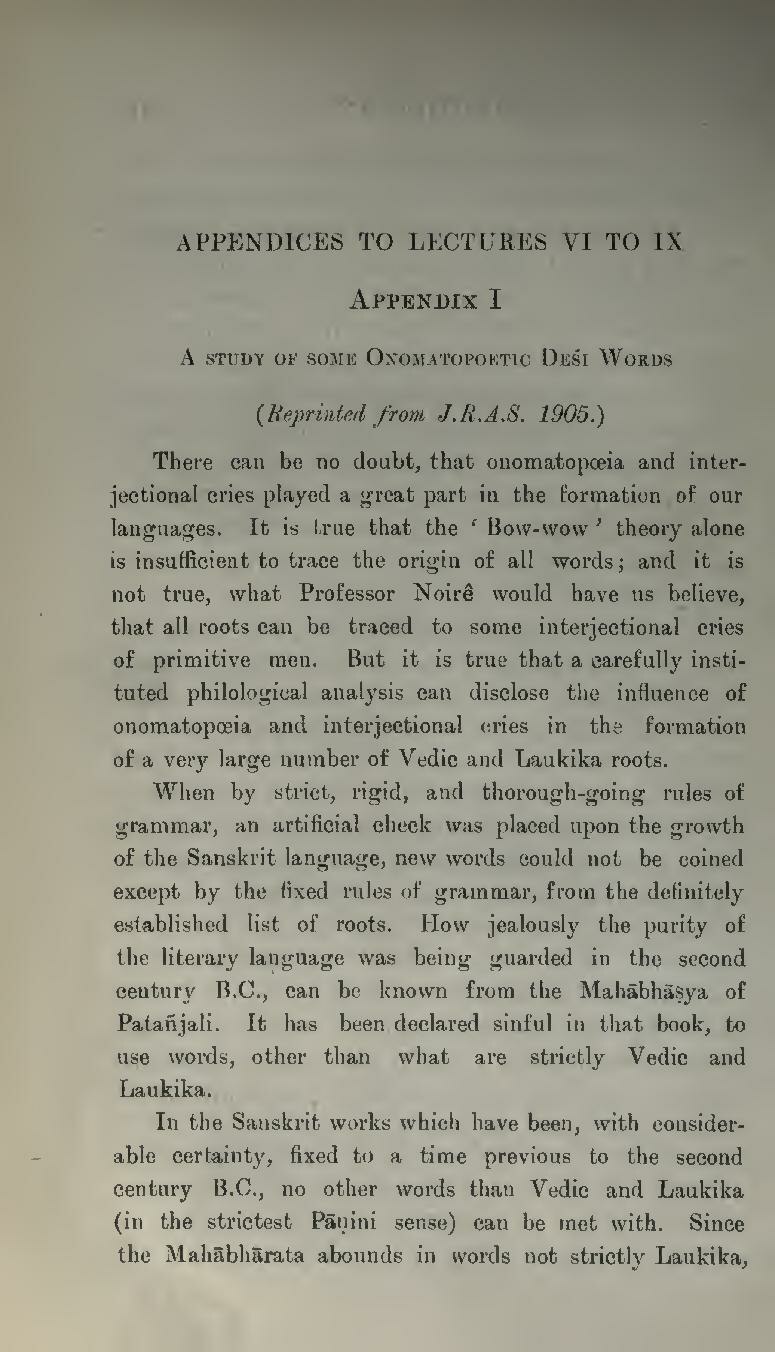APPENDICES TO LECTURES VI TO IX
Appendix I
A study of some Onomatopoetic Deśī Words
(Reprinted from J.R.A.S. 1905.)
There can be no doubt, that onomatopœia and interjectional cries played a great part in the formation of our languages. It is true that the 'Bow-wow' theory alone is insufficient to trace the origin of all words; and it is not true, what Professor Noirê would have us believe, that all roots can be traced to some interjectional cries of primitive men. But it is true that a carefully instituted philological analysis can disclose the influence of onomatopœia and interjectional cries in the formation of a very large number of Vedic and Laukika roots.
When by strict, rigid, and thorough-going rules of grammar, an artificial check was placed upon the growth of the Sanskrit language, new words could not be coined except by the fixed rules of grammar, from the definitely established list of roots. How jealously the purity of the literary language was being guarded in the second century B.C., can be known from the Mahābhāṣya of Patañjali. It has been declared sinful in that book, to use words, other than what are strictly Vedic and Laukika.
In the Sanskrit works which have been, with considerable certainty, fixed to a time previous to the second century B.C., no other words than Vedic and Laukika (in the strictest Pāṇini sense) can be met with. Since the Mahābhārata abounds in words not strictly Laukika,
